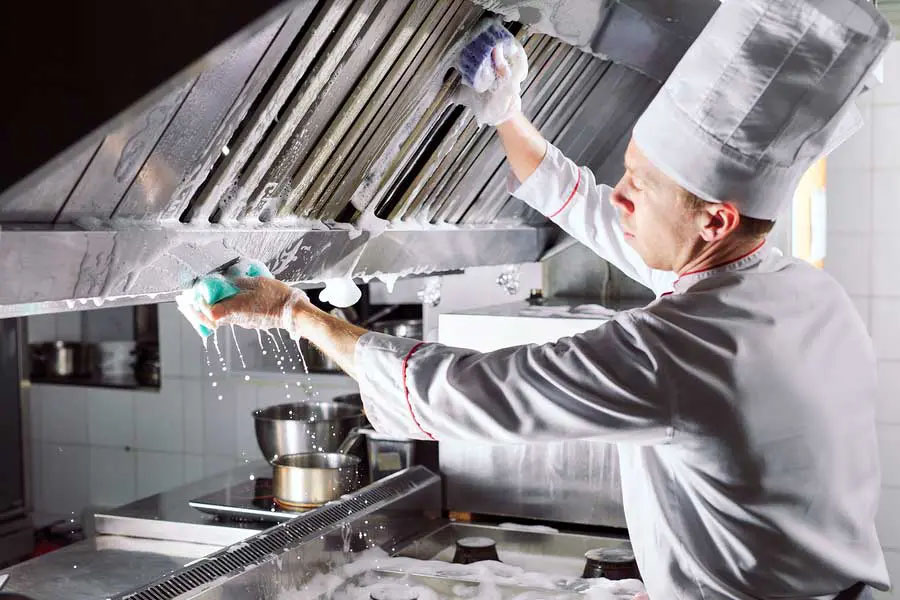Stay Sharp: Maintenance Tips for Kitchen Appliances in Professional Kitchens
In a professional kitchen, your appliances are more than just tools—they’re the backbone of your service. A combi oven that doesn’t steam properly, a fridge that runs too warm, or a mixer that slips during prep can disrupt more than just workflow—it can impact quality, consistency, and your bottom line.
And yet, most kitchen equipment is expected to run indefinitely without much more than a wipe-down at the end of service.
The truth? Even the toughest commercial appliances need regular attention. A little bit of maintenance goes a long way towards preventing downtime, extending the life of your gear, and keeping your kitchen running like a well-oiled machine.
Here’s a practical, no-fluff guide to keeping your kitchen equipment in peak condition—with systems that work even during busy service.
1. Daily Checks: Build It Into Closing Procedures
Good maintenance starts with small, consistent habits. The best place to embed these is in your daily closing routines.
Here’s what to include:
-
Wipe down external surfaces of ovens, grills, and fryers with a non-abrasive cleaner. Build-up of grease can affect performance and safety.
-
Empty and clean filters—especially on fryers and dishwashers. Oil and food particles can reduce efficiency and cause unnecessary strain.
-
Check seals on fridges and freezers—cracked or loose seals lead to energy loss and inconsistent temperatures.
-
Clean combi oven chambers and descale if needed—limescale build-up is one of the top causes of service calls and reduced steam function.
Pro tip: Keep a small maintenance log by each major appliance. Just a dry-wipe board or checklist. It creates accountability and ensures small issues are caught early—before they become big ones.
2. Weekly Deep Cleans: Go Beyond Surface Shine
While daily wipes keep things looking clean, deep cleans are what actually preserve performance.
Your weekly checklist might include:
-
Pulling out and cleaning under/behind appliances to prevent pest issues and airflow blockages.
-
Disassembling mixer attachments, food processors, and slicers for a full soak and sanitation.
-
Degreasing ventilation hoods and cleaning filters—especially if you’re running high-fat service.
-
Calibrating temperature settings on fridges, freezers, and sous vide units to ensure accuracy.
Kitchen logistics tip: Rotate weekly cleaning responsibilities by station or day to avoid overloading one shift. It becomes part of the rhythm rather than an afterthought.
3. Monthly Maintenance: Treat It Like an Ingredient Order
Once a month, schedule a more thorough walk-through of your appliances. Not just for cleaning—but for inspection and performance checks.
Look for:
-
Unusual noises, slow starts, or inconsistent outputs
-
Fraying cords or exposed wiring
-
Misaligned doors, loose handles, or uneven surfaces
-
Signs of wear on blades, belts, or fans
Document anything you spot—even if it seems minor. It’s easier (and far cheaper) to replace a worn gasket or recalibrate an oven door than to lose an entire evening’s service to unexpected failure.
Support solution: This is where a formal maintenance agreement comes in. Spiteri Catering offers flexible maintenance contracts tailored to professional kitchens—ideal if you'd rather hand the monthly checks off to someone who knows your equipment inside out.
4. Seasonal Servicing: Get Ahead of the Breakdowns
Twice a year, schedule a full-service check-up—especially for high-use items like ovens, dishwashers, refrigeration units, and water boilers.
Why?
-
Peak seasons are predictable (Christmas, summer weddings, large-scale events)—and that’s when equipment failure hurts most.
-
Preventative servicing extends the lifespan of expensive assets and often validates warranty terms.
-
Technicians can catch issues early—before they become critical.
Smart scheduling tip: Book these during quieter trading periods, like early spring or post-summer lull. Spiteri’s service team can often work around your setup, so you're not out of action while inspections are carried out.
5. Train Your Team: Maintenance Is Everyone’s Job
You wouldn’t expect your sous chef to guess their mise en place—so why assume your team knows how to care for a £5,000 combi oven?
Make equipment handling and basic maintenance part of staff training:
-
How to clean equipment properly
-
What warning signs to report immediately
-
Who to speak to when something’s not right
-
How to store, shut down, or switch off appliances safely
Even better—get your suppliers or maintenance partners to do a walk-through or demo during onboarding. Spiteri Catering can provide usage training or tips when delivering new equipment to help embed good habits from the start.
6. Have a Contingency Plan
No kitchen is immune to technical issues—but the difference between chaos and control is planning.
-
Keep backups of small appliances (like immersion blenders or contact grills) if they’re essential to service.
-
Have key contacts saved—engineers, service partners, suppliers who can provide quick replacements.
-
Know your warranty and support terms—and log service history where it's easily accessible.
One advantage of working with suppliers like Spiteri Catering: They don’t just sell kit—they often support it. If you’re sourcing appliances from them, ask about support options and priority servicing as part of the relationship.
Closing Thoughts: Treat Your Tools Like Your Team
Your kitchen appliances work hard, day in and day out. And like any good team member, they perform best when respected, supported, and looked after.
You don’t need an engineering degree to maintain your equipment—just consistent systems, a bit of discipline, and a trusted partner who can step in when needed.
Spiteri Catering offers flexible maintenance agreements designed specifically for catering and professional kitchen environments. Whether you're managing a single site or multiple venues, regular servicing can help you stay ahead of issues—and stay focused on what really matters: the food..


